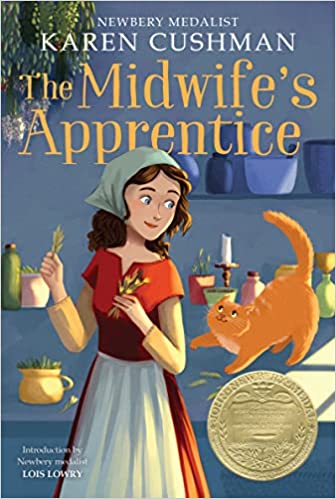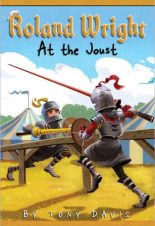The Midwife’s Apprentice
by Karen Cushman
AR Test
9+
Score
6.0
144
A girl known only as Beetle has no family, no home, and no future until she meets Jane the Midwife and becomes her apprentice. As she helps short-tempered Jane deliver babies, Beetle—who renames herself Alyce—gains knowledge, confidence, and the courage to want something in life for the first time.
At first, Alyce thinks she is unimportant and unworthy of kindness. The midwife often reminds Alyce that she is a nimwit, a lackwit, and has no brains. At first, Alyce believes the midwife’s assessment of her and silently takes the midwife’s abuse. Slowly, with the help of fate, Alyce begins to realize that she is worthy and deserves a real name. However, Alyce’s growing confidence is often overcome by fear. And when Alyce faces failure, she runs away from the midwife and leaves the village. While she is gone, she learns to value herself and to ask herself what she really wants.
As the title implies, the story revolves around a midwife who often delivers babies. While none of the births are described in detail, there are some long descriptions of the herbs and potions that are used during birth. In addition, the story discusses some of the medieval superstitions revolving around birth. Because Alyce is the midwife’s apprentice, she accompanies the midwife and learns many skills through observation. Due to this, there is little action (after all, babies take time and patience to deliver.)
While Alyce isn’t necessarily a relatable character, readers will still sympathize with her plight and understand her fear of failure. Originally, Alyce allows her fear and uncertainty to paralyze her, but she eventually learns that failure is part of life and she must “try and risk and fail and try again and not give up.” Even though Alyce is frightened, she is brave when a boy almost drowns and she saves him, and when a woman is struggling to birth her child, Alyce uses her knowledge to safely bring the child into the world. These events help Alyce learn that “everyone is somebody” and everyone deserves to be treated with kindness. It is Alyce’s compassion for those in need that make her a truly remarkable character.
The Midwife’s Apprentice received the Newberry Medalist award. It has universal appeal because Alyce wants what every human wants—to be loved. Through Alyce’s experiences, readers will step back into medieval times and learn about their superstitions, customs, and the importance of midwives. The rich period language, advanced vocabulary, and slow pace make The Midwife’s Apprentice best for strong readers who are interested in the topic. Readers who stick with the story will fall in love with Alyce and her cat, and the story’s conclusion will leave readers with a warm glow and encourage them to never give up.
Sexual Content
- Alyce spies on the midwife and sees her kissing the baker, “and him with a wife and thirteen children in their cottage behind the ovens.”
- While looking at a comb, the merchant says, “Comb those long curls till they shine, girl, and sure you’ll have a lover before nightfall.”
- Some of the village boys have “too much ale and too few wits.” When they see Alyce, a boy says, “Dung Beetle, give me a kiss.” Alyce runs away.
- The priest opens the door to a barn and sees “the smith’s lardy daughter, and the pockmarked pig boy from the manor. The boy gathered his breeches and flung himself out the barn window.” Their behavior was blamed on the Devil.
- While looking for a friend, a man looked at Alyce and said, “Forget this Edward, curly top. . . Climb up here on this hay bale and give me a warm, sticky kiss.” Alyce tells the man, “Save your sticky kisses for your wife or your cow.”
Violence
- The boys in the village are mean to Alyce and her cat. “The taunting, pinching village boys bedeviled the cat as they did her, but he, quicker and smarter than they, always escaped. She did not, and suffered their pinching and poking and spitting in silence. . .”
- Two of the village boys throw rocks at Alyce, “which made the villagers laugh.”
- One day the village boys capture the cat. A boy put the cat in a sack with an eel. “And the sack with eel and cat was tossed into the pond.” Alyce saves the cat.
- A boy drags Alyce to a pregnant woman’s house to help deliver a baby. When Alyce doesn’t know what to do, the woman yells, “‘ ‘By the bones of Saint Cuthbert, they have sent me a nimwit! You lackwit! No brains!’ Screeching still, the miller’s wife let go of Beetle’s arm and began to throw at the girl whatever she could reach from her bed—a jug of warm ale, half a loaf of bread, a sausage, the brimming chamber pot.” The midwife shows up and sends Alyce away.
- For fun, a mean boy would sit on Alyce, “so Jack and Wat could rub chicken manure in her hair.” The miller was also mean to Alyce. He “pinched her rump when she brought grain to the mill.”
- When the village boys begin teasing Alyce’s cat, “she took a handful of nuts, the biggest and hardest and heaviest in her basket, and heaved them at the boys.” Then she yells, “Touch that cat again and I will unstop this bottle of rat’s blood and viper’s flesh and summon the Devil, who will change you into women, and henceforth each of you will giggle like a woman and wear dresses like a woman and give birth like a woman!” The boys leave the cat alone.
- A pregnant woman sends someone to get Alyce, instead of the midwife. The midwife is furious and “she began to throw cooking pots.” Alyce quickly leaves the room.
Drugs and Alcohol
- The midwife uses herbs and other plants such as “columbine seeds to speed the birth, cobwebs for stanching blood. . . jasper stone as a charm against misfortune, and mistletoe and elder leaves against witches.”
- Throughout the story, both children and adults drink ale. The adults also drink wine.
Language
- After Alyce pulls the cat out of a pond, she says, “Damn you, cat, breathe and live, you flea-bitten sod, or I’ll kill you myself.”
- The midwife insults Alyce and calls her derogatory names such as a “clodpole,” “brainless bratt,” “good-for-nothing,” “shallow-brained wiffler,” etc. Other villagers call Alyce names as well.
- While delivering a baby, the midwife tells the woman, “Push, you cow. If an animal can do it, you can do it.”
- Alyce saves a boy from drowning in the river. When he calls Alyce brave, she says, “I near pissed myself. I did it for else you’d have drowned and gone to Hell, a drunken loudmouth bully like you, and I would have helped send you there. . .”
- The saints’ names, such as “corpus bones,” are used as exclamations, but rarely. For example, a pregnant woman says, “Let me die. By the bones of Saint Mildred, let me die.”
Supernatural
- The midwife requested “a murder’s wash water” to help in delivering babies.
- People are superstitious and think there are witches and devils in town because a two-headed cow was born and a “magpie landed on the miller’s barn and would not be chased away.” Then they see strange footprints and the villagers are “convinced the Devil had found their village and was looking for souls to lead into sin.” For a while, when people were found sinning, the villagers thought the Devil tempted them.
- People believed that “newborn infants are readily seized by fairies unless salt is put in their mouths and their cradles, that a baby born in the morning will never see ghosts, and that a son born after the death of his father will be able to cure fevers.”
- The villagers believed that twin cows were “a joy and a boon while twin babies were ill-starred and unlucky.”
Spiritual Content
- When the hay had been cut and was drying, “the village [was] praying for rain to hold off until the grain was safely cut and stored away.”
- When the midwife injures herself, “her furious oaths made Beetle truly fear she was a witch, for only someone who had truck with the devil could know such words.”
- Alyce helps birth a cow. During the labor, a boy tells her, “Rub her head and belly. If we can but calm her, God will tell her and the calf what to do.”
- An innkeeper cheats her customers. She tells Alyce, “Thundering toads. . . I am sure God does not begrudge me my little economies.”
- A peasant “cursed God for making him a peasant and not a lord.”
- While delivering a baby, Alyce “called on all those saints known to watch out over mothers—Saint Margaret and Saint Giles and Saint Felicitas, and even Saint Loy who protects horses, and Saint Antony, who does the same for the pigs, for she believed it would do no harm.” After the baby is safely born, “the man and the servants, still on their knees before her, prayed and thanked her for the cure of their mistress.”
“Everybody is somebody and so are you,” Alyce. –The Midwife’s Apprentice
Latest Reviews

The Terror of the Southlands

Wrath of the Exiles

Jasmine Toguchi, Drummer Girl
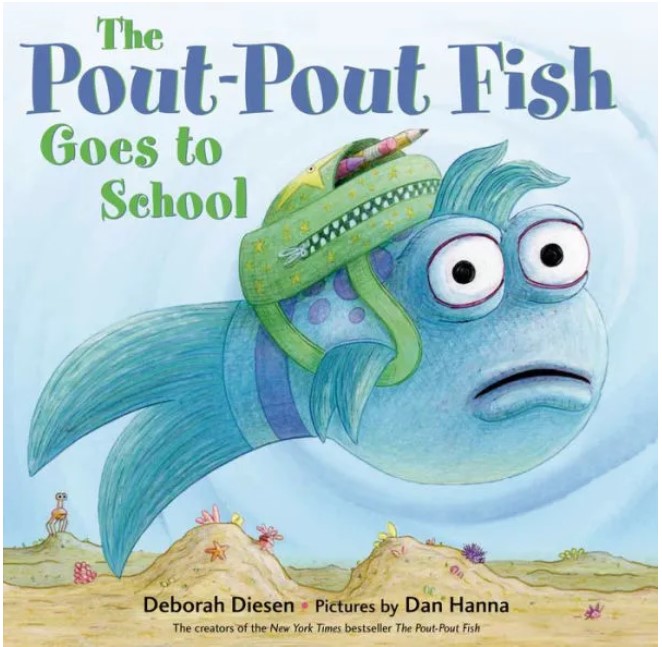
The Pout-Pout Fish Goes to School

The Brink of War

Get Well, Crabby
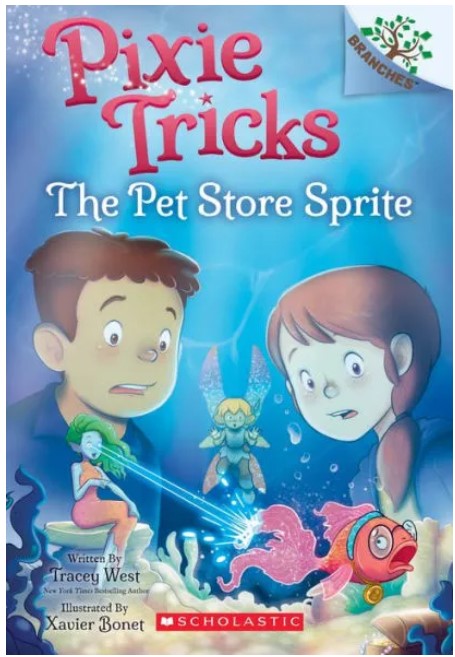
The Pet Store Sprite

Stacey’s Remarkable Books
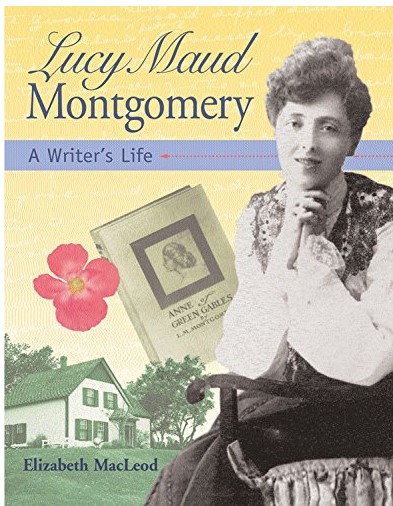
Lucy Maud Montgomery: A Writer’s Life

